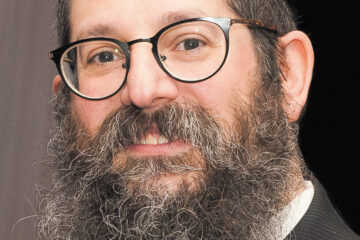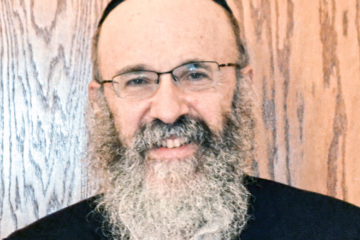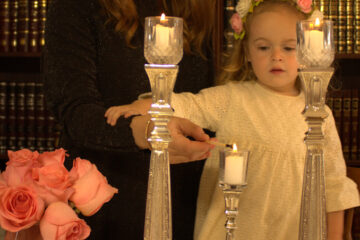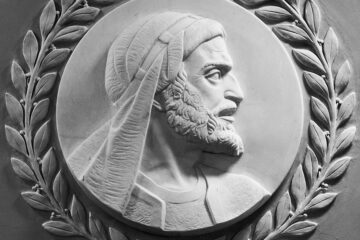Proudly defiant
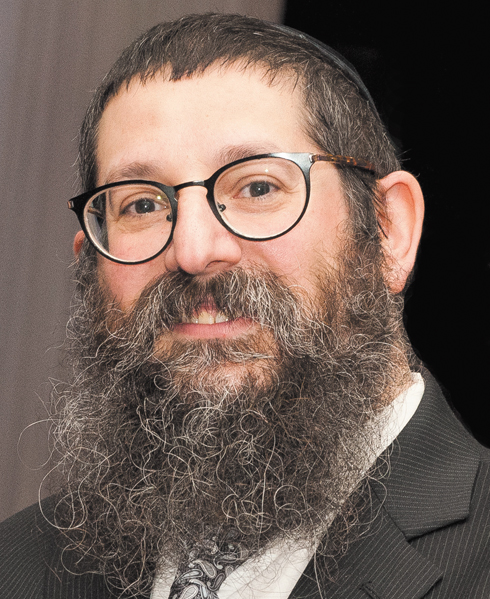
By Rabbi Nochum Mangel, Director, Chabad of Greater Dayton
Miami Valley rabbis share thoughts on unprecedented U.S. antisemitism
Sunday evening, Dec. 29 — the last night of Chanukah — after the attack in Monsey, N.Y., when a terrorist with a machete attacked Jews celebrating Chanukah, I lit my own menorah, and as I sat and watched the candles burning, I read two articles on this ugly current wave of antisemitism.
The first was by Prof. Deborah Lipstadt in The Atlantic. Her main concern was not so much what the attackers were doing but what Jews are doing in response to them — going underground. In Europe and other places abroad, and now on our college campuses here in the United States, Jews are concealing their identity so that they do not have to face the antisemitism that has become so bold and prominent on the campuses and on the European street.
The second article was about the response of the Jews of Monsey to the terror they had just experienced. They may feel frightened and shaken, yet they are defiant. Just after the attack, the community came together in the street to celebrate the completion of a new Torah scroll.
And now I sit and wonder: which of these responses will serve best in the long-run to protect and save Judaism? Is it the reaction that if I conceal my Judaism I will be protected and safe? Or is that while aware of the dangers, I resolve nonetheless to brave them and proudly proclaim and celebrate my Jewishness and Judaism before all?
I understand and appreciate the need to protect oneself and so to hide from the danger. Self-preservation is one of the most powerful instincts of humanity, as well as being almost the highest priority in Jewish law. However, we must ask ourselves if it will best protect Judaism and the Jewish community in the long-run.
We are fortunate to have the counsel of a long history. We have experienced many trials and tribulations at the hands of antisemites of all sorts over that long history. We have the luxury of looking back to see what has worked and what hasn’t over the long haul.
Our first oppressors were the Egyptians. Despite the harsh enslavement, the Midrash tells us that our ancestors continued to dress in their distinctive way, to speak Hebrew, and to use their Hebrew names. Perhaps changing wouldn’t have helped, but this does not take away from their bold courage, which showed that we were capable of carrying God’s torch and qualified for our historical role.
Our next major holiday is Purim, which we celebrate in a couple of weeks. Its story also shows there were proponents of both these ways back then. One group felt that we should go to the party made by the Persian king celebrating the downfall of Israel and show our subservience and loyalty. They were even willing to bow down to the king’s hateful minister Haman, hoping that would gain them acceptance.
But it was Mordechai who led the Jews to a miraculous deliverance, inspiring them to follow his example of testifying to God with every act. He recognized that acquiescing and bowing would mean spiritual death. He persuaded Esther not to duck her responsibility and to seize the moment to set an everlasting example. She affirmed her Jewishness before the king and precipitated the downfall of the murderous antisemite Haman and all who had joined with him.
We can skip a few centuries to the story of Chanukah, which we just celebrated. Many Jews at that time felt that if they acted like the Greeks, they would be safe. It was only a small group of dedicated Jews who thought otherwise, refused to hide or assimilate, and persevered, eventually winning the great victory that we celebrate to this day.
Almost two millennia later, at the time of the Spanish Inquisition, the same argument resurfaced. Many Jews in Spain thought the best course of action was to accept Christianity publicly and to keep their Jewish commitment a secret. Where are the descendants of those conversos today? Most of the Spanish Jews of today came from those who were willing to stay true to their Judaism. Rabbi Don Yitschak Abravanel could have stayed on in his post as the king’s treasurer if only he converted. Instead, he chose to leave his wealth and fame and took to the road, along with the other thousands of faithful Jews, the ancestors of today’s Sephardim.
In modern times, in the 20th century, many taught that the safety of Jews lay in merging invisibly into the fabric of their host country, to become indistinguishable from the non-Jews in every way. It did not stop the persecution of Dreyfus in France; it did not save the Jewish Communists in Russia; and it did not save any Jew in any of the lands to which the Nazis came with their horrors.
In the midst of the grim terror of Stalin’s Russia, the sixth Lubavitcher Rebbe, Rabbi Yosef Yitschak Schneersohn, led his followers in standing up publicly for Judaism. He taught that we must accept the risks bravely, and by our lives, testify to the supreme value of the holiness of Jewish life. Our children will know our sacrifice and know how vital Judaism really is and they will wish to continue it.
When Jews came to America, the first reaction of many was that our safety lay in our assimilation. A modest private allegiance that would in no way make waves would preserve us best as a tiny minority in a vast new land.
When Rabbi Schneersohn came to America, fleeing the Nazi onslaught, he rallied Jews to once again stand up publicly for God and the Jewish people and to lead once again a life that testifies to the glory of the Creator of the World, its rightful ruler.
He and his successor, Rabbi Menachem Mendel Schneerson, taught that we have nothing to be ashamed of in being proud of our role, and that if we stand up and accept its challenges courageously, we will inspire others.
Most importantly, we will inspire our own children to take it up as well, when they see by our example how supremely important it is. That is why the Rebbe initiated his many public mitzvah campaigns, such as public menorah lightings, as we just experienced at Chanukah time.
Courage always, and when facing persecution and hatred — defiance. This is what has preserved our people.
I share Prof. Lipstadt’s concern. She, after all, is someone who courageously faced down a Holocaust denier in open court and won a landmark victory, and she is justly concerned that we do go into hiding.
We must not go underground. We must not go along on our own with the program of the antisemites, who ardently wish for our disappearance. We must take a courageous stand and publicly defy this hatred. It is by identifying as Jews and fighting openly and proudly for our Judaism that we can best guarantee our survival and even our flourishing.
Over history, we have been murdered, maimed, tortured, and harassed, but we are still here. Let all the world see, and let our children see, that we do not back down before hatred, that we have a message worth standing up for and fighting for. Making that powerful statement and backing it up constantly with action is our best strategy.
May it be, with God’s blessing, that a united, public commitment will deter and demoralize the haters, and we see a victory over antisemitism that results at last in a peaceful world in which God’s values are appreciated by all.
May this be speedily in our days!
To read the complete February 2020 Dayton Jewish Observer, click here.


